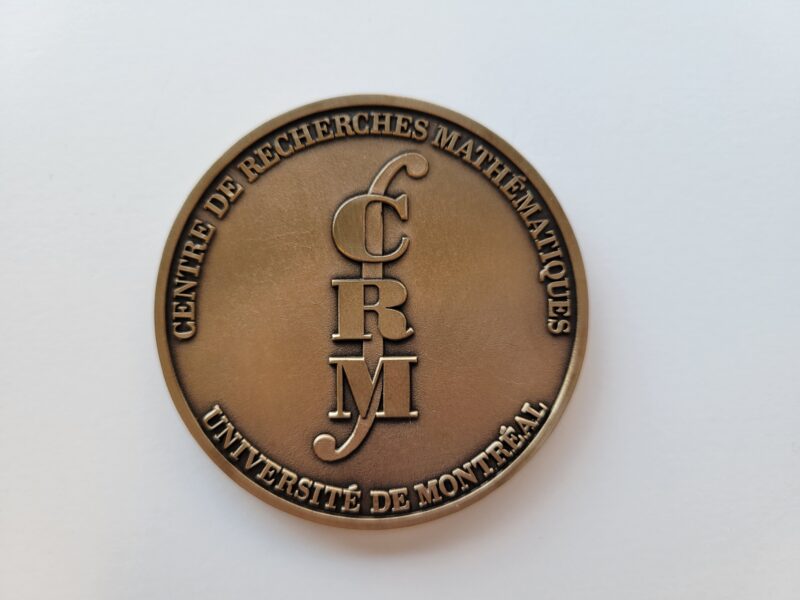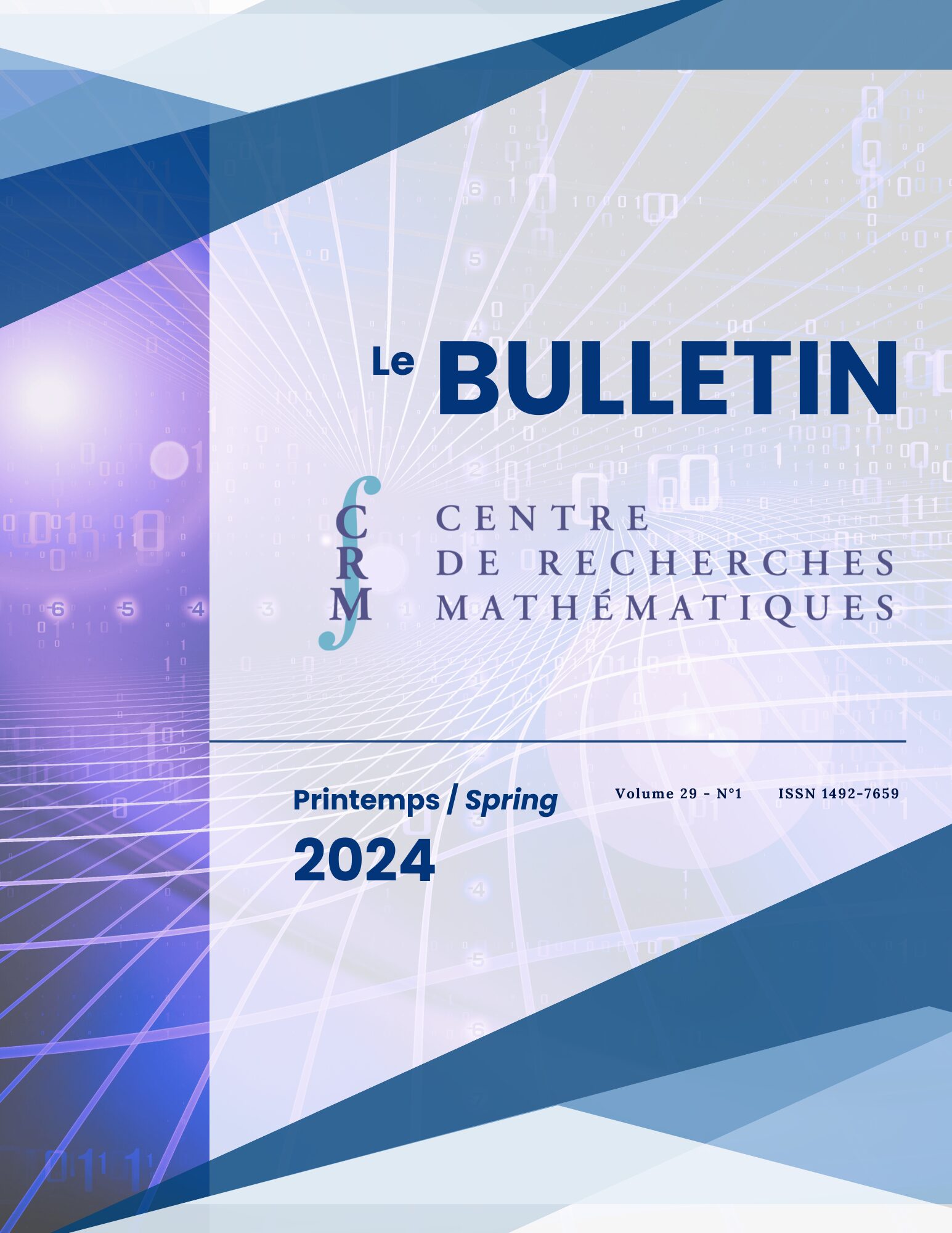Giulio Tiozzo et Tristan C. Collins sont les lauréats du Prix André-Aisenstadt 2021
Le prix André-Aisenstadt reconnaît cette année le talent de Giulio Tiozzo (Université de Toronto) et Tristan C. Collins (Massachusetts Institute of Technology). Plusieurs brillants mathématiciens étaient en lice pour le prix André-Aisenstadt cette année. Encore une fois, le Comité scientifique international du CRM a été particulièrement impressionné par les réalisations de ces candidats et a ainsi décidé que deux prix devaient être décernés. Situation rare, ceci est une expression de grande qualité de leurs travaux.
 Giulio Tiozzo (University of Toronto)
Giulio Tiozzo (University of Toronto)
Entropy along the Mandelbrot set
Résumé : The notion of topological entropy, arising from information theory, is a fundamental tool to understand the complexity of a dynamical system. When the dynamical system varies in a family, the natural question arises of how the entropy changes with the parameter.
In the last decade, W. Thurston introduced these ideas in the context of complex dynamics by defining the « core entropy » of a quadratic polynomials as the entropy of a certain forward-invariant set of the Julia set (the Hubbard tree). As we shall see, the core entropy is a purely topological/combinatorial quantity which nonetheless captures the richness of the fractal structure of the Mandelbrot set. In particular, we will relate the variation of such a function to the geometry of the Mandelbrot set. We will also prove that the core entropy on the space of polynomials of a given degree varies continuously, answering a question of Thurston.
Finally, we will provide a new interpretation of core entropy in terms of measured laminations, and discuss its finer regularity properties such as its Holder exponent.
Biographie : Giulio Tiozzo est professeur adjoint de mathématiques à l’Université de Toronto. Il a obtenu son doctorat à Harvard en 2013, sous la direction de C.T. McMullen. Avant de se joindre à l’Université de Toronto, il était professeur adjoint Gibbs à l’Université Yale et, en 2018, il a reçu la bourse Alfred P. Sloan. Sa recherche porte sur les systèmes dynamiques et la théorie ergodique, avec des applications à l’analyse complexe, aux probabilités et à la théorie géométrique des groupes.
 Tristan C. Collins (MIT)
Tristan C. Collins (MIT)
Exploring string vacua through geometric transitions
Résumé : A fundamental problem in string theory is the multitude of distinct geometries which give rise to consistent solutions of the vacuum equations of motion. One possible resolution of this « vacuum degeneracy » problem is the « fantasy » that the moduli space of string vacua is connected through the process of « geometric transitions ». I will discuss some geometric problems associated to this fantasy and their applications.
Biographie : Tristan Collins est professeur adjoint au département de mathématiques du MIT. Auparavant, il était professeur adjoint Benjamin Peirce à l’Université Harvard. Il a obtenu son doctorat sous la supervision de D.H. Phong à l’Université Columbia à New York. Avant d’étudier à Columbia, il avait fréquenté l’Université de la Colombie-Britannique à Vancouver, en Colombie-Britannique, où il a travaillé avec Malabika Pramanik. La recherche de Tristan Collins porte sur la géométrie et en analyse. Il s’intéresse particulièrement aux flots géométriques, et aux applications de la géométrie algébrique à l’analyse, et vice versa. Il est entre autres financé par la subvention NSF DMS-1810924, la subvention NSF CAREER DMS-1944952 et une bourse Alfred P. Sloan.


 Giulio Tiozzo (University of Toronto)
Giulio Tiozzo (University of Toronto) Tristan C. Collins (MIT)
Tristan C. Collins (MIT)
